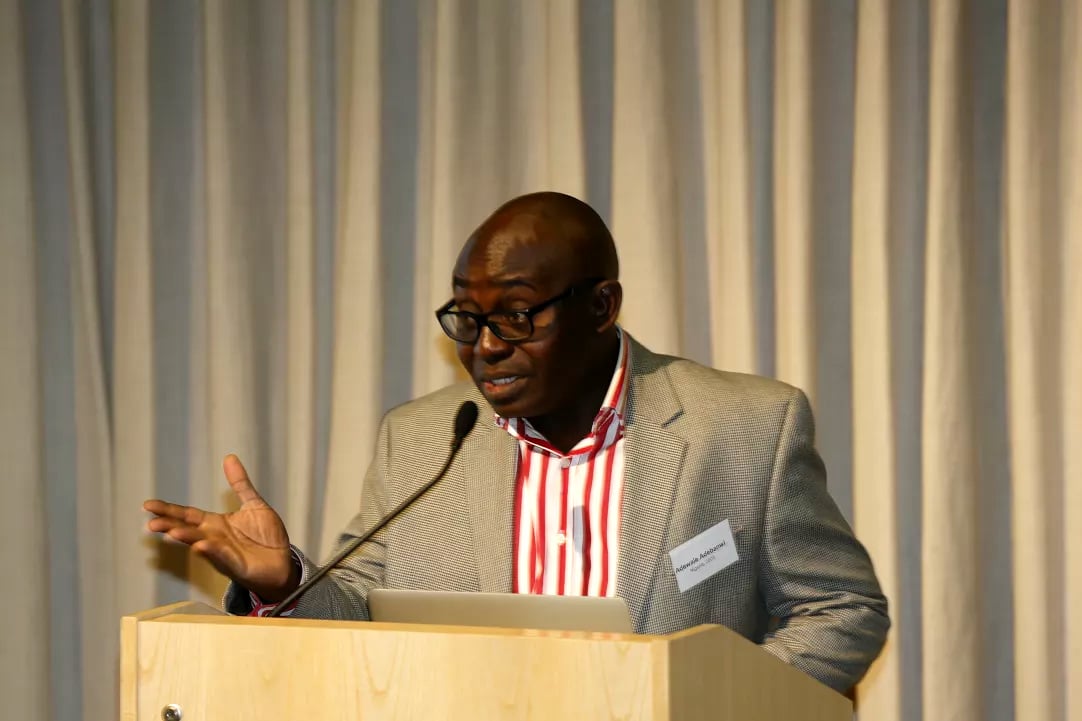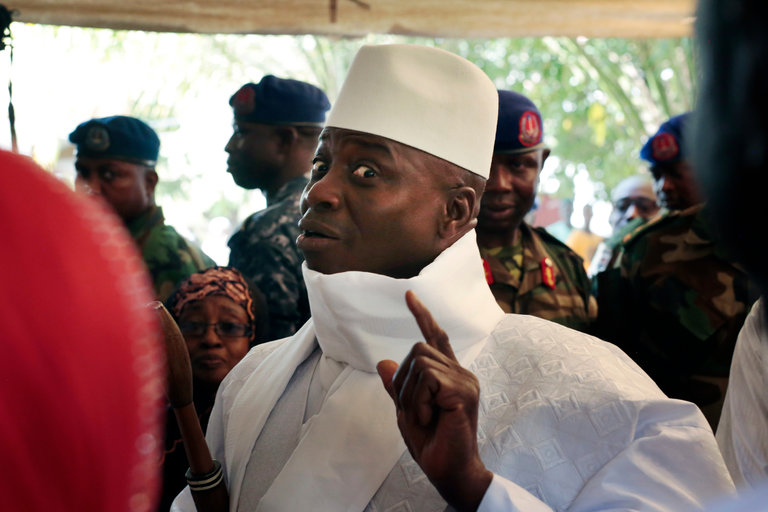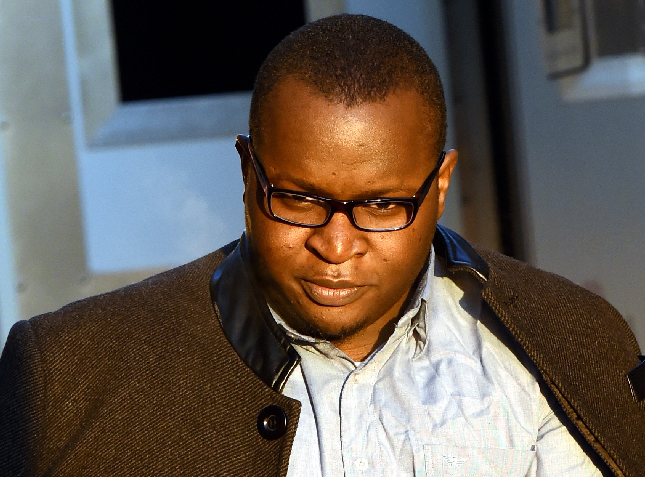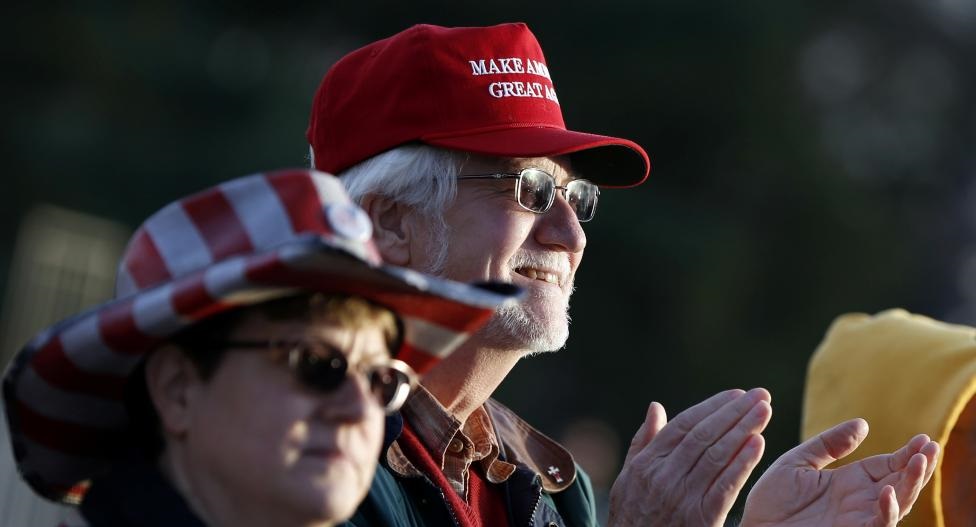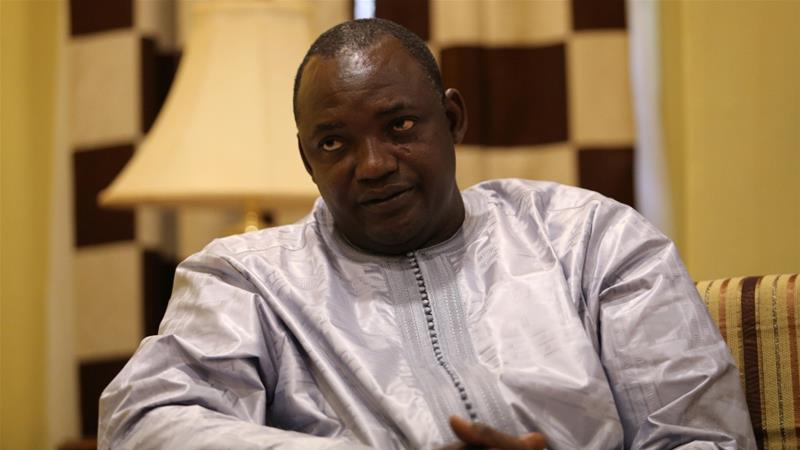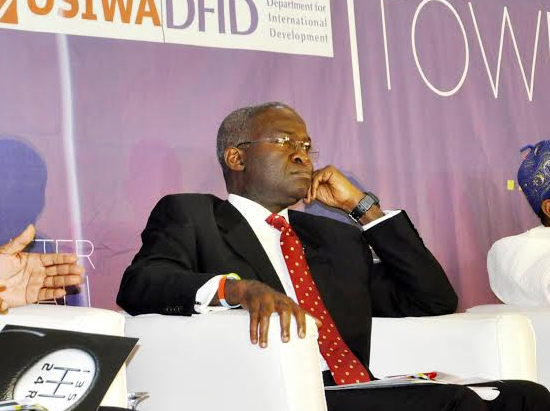Wale Adebanwi, 47, is the first black African scholar to be appointed to the prestigious Rhodes Professorship in Race Relations in the School of Interdisciplinary Area Studies at the University of Oxford, UK, since it was created more than 60 years ago. Adebanwi, currently a professor at the University of California-Davis, US, will also be a Fellow of St Anthony’s College, Oxford, from July 1, 2017 and the next Director of the African Studies Centre of UK’s oldest university. Adebanwi holds a BSc in mass communication from the University of Lagos; MSc and PhD in political science from the University of Ibadan;and MPhil and PhD in social anthropology from the University of Cambridge. He was one of former Gates scholars with “amazing successes” celebrated recently by the Microsoft co-founder, Bill Gates, who instituted the scholarship at Cambridge over a decade ago. Prof. Adebanwi discusses his aspirations and the state of scholarship in Nigeria in this email interview with TheCable.
TheCable: Congratulations on your Rhodes Professorship at the University of Oxford. As the first black African scholar to be so appointed, should we say African scholars are increasingly getting the recognition they deserve?
Wale Adebanwi: Thank you. Many African scholars have been getting the recognition they deserved for a long time. There are many names that one can mention in the modern era, say from the 19th century, who have attracted global recognition, although, admittedly not always at par with their accomplishments. Therefore, stating that many African scholars have received their deserved recognition is not to overlook the challenges that many have faced in getting due recognition for what they contributed to knowledge production. Even in the last decade or two, we have had many African scholars both in the continent and outside the continent whose talents and accomplishments have been duly recognized. I don’t think you have space for the names and I also do not have the capacity to name them all.
But there is hardly any area of knowledge production that you cannot find Africans in the contemporary world, even in the most arcane of sciences, making important contributions, for which they are recognized. Yet, I must add that there are many who are yet to gain the recognition that they deserve partly because knowledge production is central to the global system of domination and discounting the contributions of Africans to human civilization is folded into that system. However, African scholars, particularly Nigerian scholars, have done and are doing amazing things around the world. It is important to note also that some of the recognition that such people sometimes fail to get is from their home countries or continent.
Advertisement
What are the expectations — and the burdens — that come with this appointment?
WA: A lot. An important part of this is about the nature of our work as scholars, as knowledge workers, so to say. But the Rhodes Professor, apart from the general duties of teaching, research and service, is also expected to fulfil some specific duties, including providing academic leadership in the field of African Studies and in the School of Interdisciplinary Area Studies while contributing to the overall development of the African Studies Centre as a, or I will say, the, world’s leading centre in teaching and research of the highest academic standard on African Studies. The Rhodes Professor is also expected to attract funding to strengthen the financial position of the African Studies Centre and the School of Interdisciplinary Area Studies, apart from participating in the academic life of the College, St Anthony’s College, as a trustee. Now, the duty of raising funds to be able to provide scholarships for students and generally enhance the production of knowledge is one of the most interesting for me.
I use interesting advisedly. I am committed to raising funds from within Africa, including corporate bodies operating within the continent, whether they are owned by Africans or by non-Africans and from Africans in the Diaspora. Of course, we will raise funds from non-Africans and corporate bodies based outside of Africa, but I think that encouraging philanthropy, especially of the more enduring type, is something we have to encourage a lot in the continent. We need to encourage people who are financially endowed to recognize the value of philanthropy, particularly when committed to educating young people and funding research. I can go on and on about this. But let me say two important things about this.
Advertisement
One, we have a duty to educate people about the nature of this kind of giving. In most cases, it is akin to making yourself immortal when you give to such causes. For instance, if you start a scholarship or a fellowship at Oxford, the money is invested and the proceeds of the investment will be used to fund the scholarship. Therefore, it is more or less eternal. Long after you are dead, generations will continue to benefit from your philanthropy.
Two, the kinds of money that you use for the benefit of humanity, in this case through education, is something that many wealthy people spend in Africa just to host parties or celebrate birthdays or bury the dead. We waste too much money in the continent, particularly Nigeria, on parties. Would you rather use your money to benefit humankind permanently, even after you are dead, or spend it to bury the dead? I don’t know if you remember Da Rocha, the famed richest man in late 19th and early 20th century in Lagos, perhaps Nigeria’s first millionaire? Where is the monument to his riches? The man became a metaphor for immense wealth. Imagine if he endowed a scholarship, even just one scholarship, for African students at Oxford, or at the University of Ibadan – which had started before he died. Do you know how many beneficiaries of his wealth we would have in critical sectors of our national life now as former Da Rocha scholars? That is one form of immortality that is permanently beneficial.
Leaving your professorship at the University of California-Davis was not that difficult, was it?
WA: Deciding to leave California with its great weather was the more difficult part. Although I must say that leaving the University of California-Davis too was not a totally easy decision because when you already know an environment well, you don’t want to leave it for something else. Also, the University of California system is the best public university system in the world. I mean the entire UC system, not just UC Davis. We have 10 UCs, each is semi-independent. But as you know, the opportunity of teaching at Oxford is nonpareil.
Advertisement
What was your experience like at California?
WA: It has been a very interesting experience with its blessings and challenges. What is most important for me is that I have been able to do some of the kinds of work I have always loved to do while I was here for eight years. I have also had a wonderful time with my wife, Temitope, and my two kids here. There have been challenges too, but I thank God.
Do you expect something radically different at Oxford?
WA: I am not sure what “radically different” means. But I hope to make a difference. I am sure there is a reason I was hired and I have my own reasons for accepting the position. I was trained also at Cambridge University, so I am not unfamiliar with the Oxbridge system. But the immense opportunities for making a difference is one of the greatest benefits of taking up this position at Oxford.
Advertisement
As the next Director of the African Studies Centre of Britain’s oldest university, what should we expect from you?
WA: I have an agenda which I cannot advertise too elaborately on this forum. But there is only little or nothing I will be able to accomplish alone without the amazing colleagues and accomplished scholars and administrators and gifted students that I will be working with at the Centre and School. My hope is that, working with these people, we are able to take the tradition of excellence at the centre to a new level by expanding opportunities for world-class graduate training as well as world-class research in African Studies. I am hoping that we can expand our understanding of Africa to include the African Diaspora spread all over the world, while expanding the curriculum.
Advertisement
Is there some irony, or conflict, that the Rhodes Professorship is named for a British businessman known for extracting resources from South Africa, which later became a racist enclave?
WA: It is a fact of a difficult and disturbing history. The role of Cecil Rhodes, for whom the professorship was named, in African history has been the subject of a lot of controversy and debate. But I need to clarify something. People sometimes confuse the Rhodes Scholarships with the Rhodes Professorship. Cecil Rhodes is the direct benefactor of the Rhodes Scholarships which was started in 1902. It was established by his will. The Rhodes Professorship was established 52 years after his death. It was endowed in 1954 by the Rhodesian Selection Trust Group of Copper Mining Companies to study ‘inter-racial relations’ and ‘racial and ethnic relations.’ It was established in his name, but not by him.
Advertisement
However, this does not remove from the core issues at stake in the debates over past injustices. Therefore, the point you are raising, which has been articulated in the #RhodesMustFall campaign, is important. And the University of Oxford recognizes this too. There is continuing conversation about what to do with this legacy, parts of which, with the scholarships and the endowed chair, are beneficial. My predecessors in this position have engaged in this conversation long before the #RhodesMustFall campaign, sometimes directly, sometimes through the force of the liberationist ethos of their scholarship.
Before he became the Rhodes Professor, one of my predecessors, an English man and professor of History, Terence Ranger, was teaching in Zimbabwe, then called Southern Rhodesia. His views about the racist minority government of the country and African history were so “radical” that he was deported in 1963 by the racist regime. His famous book, Revolt in Southern Rhodesia, 1896-97: A Study in African Resistance, explores how Africans lived before Cecil Rhodes and others arrived there in 1890 to seize the country. I hope to continue in the liberationist tradition of such scholarship and push it as far as I can. For me, the key question that the controversies and debates raise is the question of how to confront the past in the politics of justice in the present.
Advertisement
Your first degree is in mass communication from the University of Lagos and you practised as a journalist at some point. Your shift to political science and social anthropology was a bit radical, or you don’t think so?
WA: I don’t actually consider it a shift. I am a social scientist with lessons in the three disciplines which have strengthened my work and life as a student of society. Even my work as a journalist was partly an ethnographic experience which an anthropologist would crave for. I could only have done that as well as I did because of my basic training in Mass Communication in Lagos. I also could not have become the kind of political scientist that I became if I didn’t have the kind of experience and training and also exposure that I had in journalism. Public affairs journalism is a great laboratory for studying politics, as I did at Ibadan. And studying anthropology at Cambridge made me a better political scientist, while studying political science has made me a better anthropologist. Training in anthropology gave detail and flesh to my political science while political science training gave structure and ideological force to my anthropology.
You’ve authored and co-authored several books. Which would you describe as the most influential? Why?
WA: I wouldn’t know. And I think the books are relatively too young to know what influence they will have. Although, some books become instantly influential, but I have not written such a book. So, you never know with the written word. You may be long gone before a sizeable number of people, particularly students of society, find your work very useful. For instance, as a student of the media, I have been working with newspapers published in Nigeria since the late 19th century up to the present. Beyond that, in recent years, I have been particularly interested in the newspaper and newspaper men as important members of the intellectual formation in colonial Nigeria, especially in the context of the Enlightenment project, specifically modernity.
So I have been focusing on Herbert Macaulay as publisher of Lagos Daily News founded in 1925 and John Jackson Payne (and his son and successor, Thomas Horatio Jackson) as publisher of the Lagos Weekly Record founded in 1891. These men were what I call “children of the Enlightenment” but they were also engaged in a dialectical struggle for and against some of the tenets or assumptions of the Enlightenment. Now, the point I want to make is that when they were articulating their ideas in their newspapers in the late 19th and early 20th century, they couldn’t imagine that it will be of such relevance to our time in understanding the long conversation that Africa has been having with modernity. That is the nature of the published word.
You are also a poet, but nothing much seems to be happening on that level again.
WA: Maybe because I am a closet poet! Art is a jealous mistress and I think I have not given my poetry as much time as it deserves. I have a collection I have been refining and re-writing for many years. I have published a few over the years, very few. I am ashamed to admit that I have not given my artistic side as much attention as I should. I have a standing and, to be honest, flattering offer from Professor Niyi Osundare, our most famous poet, to write a blurb to my collection (he has read some of them and teases me about one he likes best, “Mogadishu Blues”) that I have, shamefully, not been able to take up. Maybe my muse is lying in wait at Oxford.
Having studied home and abroad, bagging two PhDs in the process, what do you think foreign universities can learn from the Nigerian system?
WA: What foreign universities can learn from the Nigerian system? That is a unique question and I must thank you for thinking about that. The old system, plenty. The current system? How to run universities without resources! Or, to put it differently, how a society can cripple its intellectual formation and then accuse it of not standing straight on its legs.
On the other hand, what should Nigerian education system learn from these universities?
WA: I think this has been answered adequately by more informed minds over the years. I don’t think they bear repeating. What needs to be done is to take action on the prescriptions. But I don’t see how we can do that with the state of our politics.
Intellectuals in the Diaspora tend to look down and talk down on their Nigerian counterparts. Even many Nigerians who go to do one-year Master’s programmes abroad come back feeling like they are intellectually superior to home-grown products. In your reading, why is this so? Are things that bad in Nigeria?
WA: That’s not my reading, and I would demand examples. Except, of course, if you are mixing up people feeling better about their scholarship, because of having access to resources, with “looking down or talking down.” When Nigeria had its priorities right, when Nigeria had universities in the real sense, did scholars in Nigeria ever complain about such things? In fact, the rest of the world came to learn from our universities. Things have been bad in Nigeria in recent decades, much worse than we often acknowledge. But this does not mean that scholars outside Nigeria or students studying outside Nigeria consider themselves, in your words, as “intellectually superior.” They certainly have access to better tools and they operate in better environment without having to struggle for basic amenities such as electricity, water and the rest. So, the question is not about talking down or looking down; it is not about what might constitute emotional reaction to a historic crisis. It is about this: what do we do to return higher education to its place in the national equation? We had world-class universities in the 1960s, 1970s and 1980s before the military took the universities to the stakes, to use an expression they are familiar with.
Nigeria voted for a change of government in 2015. If we look back today, should we still consider that a positive development?
WA: You will be better with an opinion poll. But there is no doubt that the situation by 2015 was in drastic need of change. But I am not sure people were clear about what kind of change they wanted. Most people just wanted change, even cosmetic change.
How can Nigeria move from underdevelopment? Are we anywhere near a positive trajectory?
WA: This a big question. We will need a seminar to even begin to think of answers. Are you ready for one?
